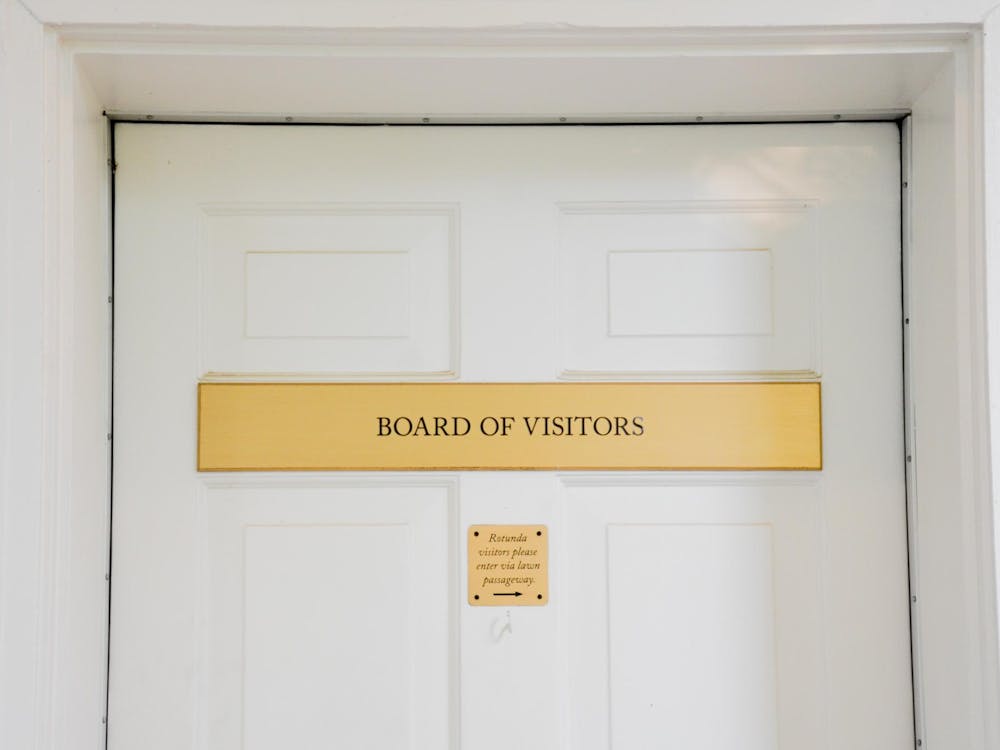It took one word before normally tactful fourth-year College student Lynda Tang started sniffing another girl's rear end.
With a snap of the finger, a student clad in a T-shirt and jeans leapt into his imaginary tutu and pranced into the arms of his ballet partner.
Thousands of people have seen the act of stage hypnotist Tom DeLuca as he manages to convince everyone from CEOs to college students to submit to his hare-brained requests. Yet every year, many audience members walk away puzzled. Were the volunteers truly hypnotized? Or were they merely complying to please the crowds?
Tang, who was onstage when DeLuca hypnotized University students Friday night, said it worked on her.
"I didn't think it was working. But he'd tell me to go to sleep and my head would just go limp. He was controlling me. I just had this blank look. When he told me to do it, I'd do it," Tang said.
It may have given audiences something to laugh at when Tang began hounding DeLuca for a bar of chocolate, but clinical psychologists certified to use hypnosis to treat patients say it can do more than entertain.
The technique DeLuca uses is also a form of psychotherapy that has been used in psychologists' offices to help smokers kick the habit, calm unruly children and even make students study better, among other things.
The secret of hypnosis lies in its ability to make the patient suggestible, said Prof. Peter Sheras, a clinical psychologist and certified clinical hypnotherapist.
"I'm fixating them in a particular way to get them to concentrate on one thing over another. It's like watching TV," Sheras said.
Tang adds that because DeLuca was the one giving the commands, only he could control her.
"It had to be his voice. If you told me to do something, I'd look at you funny. But when he told me, then I thought, 'Hey, that's a good idea,'" she said.
Sheras said he gets patients to fixate on something by having them visualize a scenario, count backwards or stare at a candle. And going along with television shows, he sometimes has patients watch a pendulum move "back and forth, back and forth."
Once the person has relaxed and fallen into a trance, Sheras says this is when the mind goes into auto-pilot mode.
Then the fun begins.
At this juncture, DeLuca, the stage hypnotist, and Sheras, the clinical hypnotist, part ways. Where DeLuca would make suggestion statements about reeling in imaginary fish, Sheras' suggestions focus on healing migraine headaches or subliminally persuading patients to quit smoking.
John Boyd, a private practitioner in Charlottesville who is certified by the American Board of Psychological Hypnosis to perform clinical hypnosis, says most of his cases deal with emotional abnormalities. Boyd's patients generally battle depression, anxiety disorders or trauma and come to him from all over Virginia for treatment.
But most of these patients come as a last resort, after they have exhausted every other treatment.
Clinical Psychology Prof. Lee Llewellyn says hypnosis is not a common practice among most psychologists because there are plenty of other methods available and just as reliable.
"Behavioral modifications and traditional conditioning techniques work just as well. The general flow of psychologists would not know [hypnosis], would not be trained in it, and would not try it," Llewellyn said.
Many psychologists fall in a similar line of thinking with Llewellyn, who remains skeptical to hypnotism's reliability. There is room for error, variance and even trickery, so she wonders how hypnotherapists are able to tell beyond a shadow of a doubt whether their patients are truly in a trance or not.
Though the most recent research has shown electrical changes occur in brain activity during hypnosis, some hypnotists such as Sheras must still play a guessing game with their patients since they are unaware of current research. But generally, he says the treatment will work for those who are willing to be hypnotized.
"If the pain is that great and they're desperate enough, then they will find ways to deal with it. They will be willing enough," Sheras said.
DeLuca said his show is personality-driven and that he is merely "unleashing their imagination" with his technique. Hypnotherapists, on the other hand, make sure not to unleash anything their patients don't want them to unleash.
"I try to help people. [DeLuca]'s trying to entertain them. And what he does can be potentially exploitative," Boyd said.
Still, University students such as Tang believe DeLuca was just out there to clear away any skepticism students have, and to give them a unique experience.
"I was skeptical. You think it works because you see the people, and you think, 'Well it must work.'" But according to Tang, the only way to find out for sure is to try it.






